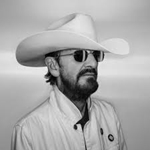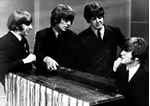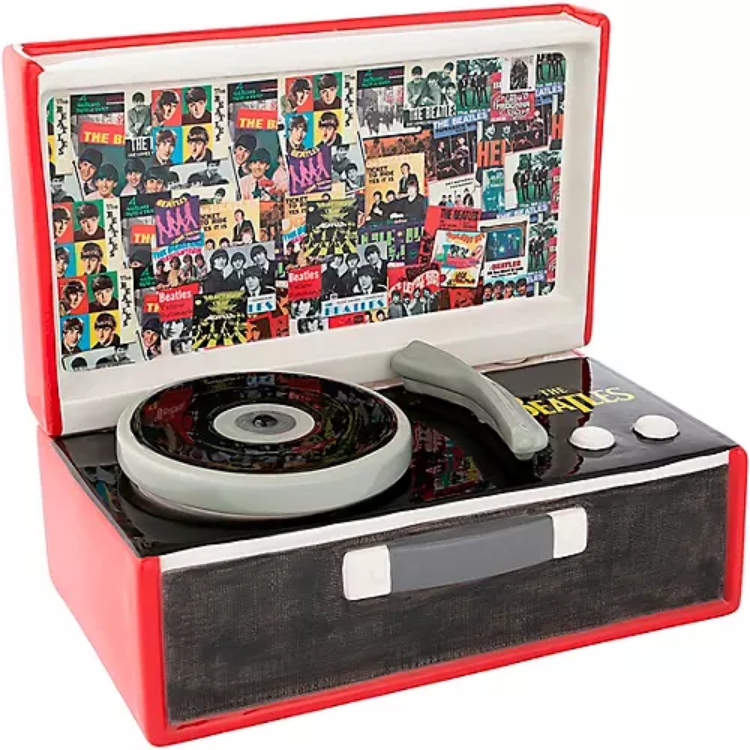- Register
- Log in to Tune-In
- Wishlist (0)
-
Shopping cart
(0)
You have no items in your shopping cart.
Beatles News

Paul McCartney has rarely taken time off. In fact, well into his 80s, the former Beatle and rock star still tours semi-regularly and knows how to put on one heck of a live show. Surprisingly, though, there was a time when McCartney really didn’t feel like performing live. And we’re not talking about The Beatles’ inevitable retirement from live music, several years before they officially broke up. Rather, we’re talking about a 10-year period from 1979 to 1989 in which McCartney refused to tour.
In a way, we understand where he was coming from. The Beatles’ tours were intense, to say the least. Few live performances from The Beatles’ past are completely audible over all the shrieking. McCartney even openly admitted that he was not a fan of live performances, even with Wings.
“It had been sort of brewing, this distaste for schlepping around and playing in the rain with the danger of electricity killing you,” McCartney once said in an interview. “You kind of just look at yourself and go, ‘Wait a minute, I’m a musician, you know. I’m not a rag doll for children to scream at.’”
When Wings wrapped up their final UK tour in 1979, details

Love can move us in mysterious ways. As the saying goes, only fools fall in love. But, what comes first the foolery or the love? In our experience, it’s the latter that sends us into a dizzying tail spin, making us act against our better judgement. Not even famous rock stars are immune to love’s effects. If you need proof of that, revisit the time George Harrison and Eric Clapton had a guitar duel over Pattie Boyd, below.
Harrison and Clapton started their relationship as friends and musical colleagues. That friendship shifted when Clapton began to have eyes for Harrison’s partner, Boyd. His infatuation for her can be felt in the caustic and blushing “Layla.” The eruption of emotion in that track makes it very clear that Clapton was head over heals for Boyd.
Clapton eventually won Boyd and the two rockers worked out their differences. Though Harrison and Clapton remained friends until the Beatle’s death, there were moments when their relationship was strained. Boyd once talked about the time the musicians let their love get the best of them.
Source: Alex Hopper/americansongwriter.com

Diehard Beatles fans know the “fifth” Beatle George Martin all too well. More chill fans may not be in the loop. For the uninformed, Martin was the main producer behind the vast majority of the Fab Four’s music. He was with the band when they were nobodies and stayed with them until the end. He was pretty vocal about how much he loved the majority of The Beatles’ music. However, there were a few tracks here and there that he didn’t love. Let’s look at four Beatles songs that George Martin said he wasn’t a fan of!
1. “Within You Without You”
This George Harrison-penned 1967 track from Sgt. Pepper’s Lonely Hearts Club Band is a pretty great song, but it wasn’t George Martin’s favorite. It wasn’t Harrison’s favorite, either. Harrison admitted that his “heart was still in India” upon returning from a trip there, and he was struggling to come up with inspired music. That much is, unfortunately, evident in “Within You Without You”. Martin described it as a “rather dreary song” that was a bit hamfisted with the Indian classical inspirations from Harrison.
Source: Em Casalena/American Songwriter details

The pressure on Paul McCartney to deliver some kind of statement in song summing up his feelings about John Lennon’s death must have been immense. How easily he could have misjudged the task and come up with something Lennon himself likely would have criticized as sappy.
McCartney managed to sidestep all of that by taking an honest look at his relationship with his ex-partner in the 1982 song “Here Today.” In so doing, he ended up delivering perhaps the most touching tribute of all to Lennon.
How could a songwriter possibly address a situation as tragic as the sudden, senseless death of John Lennon? Many did, and some did so quite admirably. (Elton John/Bernie Taupin, Paul Simon, and another Beatle, George Harrison, come to mind.) But expecting Paul McCartney to do it was another story.
Of course, McCartney is one of the finest songwriters of any era, so his skill was never the question. But because the whole world knew him as one half of the greatest writing team of all time—with Lennon being the other half—it was never going to be easy to put all that into words. And the public also knew well the two men weren’t always on the best of terms, especially after The Beat details

This week, Ringo Starr announced his return to country music with a brand-new album, Look Up, produced by T Bone Burnett. Following the release of his latest single, "Time on My Hands," Starr has shared several teasers on social media, including images from the album art photoshoot.
In a true meeting of Genesis authors, the concept for the album was born at the Sunset Marquis book launch for Olivia Harrison's Came the Lightening: Twenty Poems for George, where Starr met Burnett. There, they discussed their shared love of country music and agreed to collaborate on the project.
"I thought Ringo was deserving of a serious album... Occasionally, you catch a glimpse of what somebody can mean now who had an illustrious past, and something that doesn't have to do with the charts and all that stuff, but just has to do with the timelessness of who they are." - T Bone Burnett
Featuring the talents of Billy Strings, Molly Tuttle, Larkin Poe, Lucius, and Alison Krauss, these artists are said to bring fresh and exciting energy to the eleven tracks, making substantial contributions to the album's overall sound.
Now shipping worldwide, below you can learn more about the new signed prints in Ringo Starr's Photog details

Luther Vandross’ Cover of The Beatles’ “Michelle” Released: “Another Classic Song Has Been Lutherized!”
The release coincides with the documentary 'Luther: Never Too Much,' which opens in select cities on Nov. 1. The 'Never Too Much: Greatest Hits' album is out on Dec. 13.
Luther Vandross passed away in 2005, but unreleased music from the R&B icon was made available Friday — a cover of The Beatles’ ‘60s hit “Michelle.”
Vandross’ close friend and vocal collaborator, Fonzi Thornton, discovered the tape following the singer’s death when he visited his family to look through his music archives, unseen videos, cassette tapes, personal effects, stage costumes and more. He then moved the archives to a room in his apartment for safekeeping.
“I found two cassettes labeled ‘Michelle’ in his handwriting — [I had] no idea what it was [and then I] played it! I realized it was a beautiful rendition of the Beatles classic that had been vocally and musically Lutherized,” Thornton tells The Hollywood Reporter. “I played Luther’s version for Jeff James, A&R at Sony and D details

The album was signed at Liverpool's Adelphi Hotel in 1965. A rare album signed by The Beatles almost 60 years ago has fetched £10,000 at auction.
The 1965 LP Help! is thought to be one of fewer than 100 albums signed by all four members still in circulation. It was sold by Annie Newby, from Durham, whose late husband owned the record for more than a quarter of a century.
She said she felt it was important the record found "a loving home". Anderson & Garland Auction Annie Newby with the signed record of Help! by The BeatlesAnderson & Garland Auction. Annie Newby remembers how much joy the album gave her late husband
It was originally bought by music enthusiast Bob Todd in September 1989, who passed it on to his friend, Max Newby, before he died.
Mr Newby owned the record until his death in 2016, and it has been in his wife's possession since. She said she recently decided "it's time to pass this special piece of music history on to another fan who will appreciate it as much as Max and Bob did".
Mrs Newby said: "The signed album brought Max and Bob immense joy. I still remember the day Bob bought it, he was so excited to show it to Max.
"He brou details

It’s been one of the more enduring celebrity death hoaxes, long before social media.
But on October 24 1969, two Life magazine reporters found Paul McCartney to reveal he hadn’t actually died in a car crash.
Benjamin Jackson looks back at how the rumour gained traction in 1969 and what breadcrumbs The Beatles left to tell the world “Paul is dead”.
Legend has it that on October 24 1969, Life magazine reporters Dorothy "Dot" Jenkins and Timothy Harper visited a farm in Scotland to interview former Beatle Paul McCartney.
That sounds run-of-the-mill, with McCartney at this point in time married to the late Linda McCartney and wanting to have a quieter family life with his two children. But it would be during this interview, that was subsequently published on November 7 1969, that Paul addressed a rumour that had blown up that year.
"Rumours of my death have been greatly exaggerated. However, if I were dead, I'm sure I'd be the last to know."
It would spell an end to the long standing suggestion that Sir Paul McCartney had died supposedly of a car accident back in 1966, and that the McCartney that was with the band between the releases from Revolver to Abbey Road wa details

Sometimes, the stories heard about the making of iconic albums seem as though that famous Las Vegas expression should be applied: What happens in the studio, stays in the studio. But for better or worse, word gets out about the fateful recording of albums like The Beatles' "Let it Be," for example, or Kendrick Lamar's "Good Kid, m.A.A.d. City." These stories range from inspirational to entertaining to worrisome—but all have the behind-the-music essence fans thrive on.
Stacker compiled a list of 25 classic albums ranging from folk rock to hip hop, along with the stories from the studios that produced these albums. For that, sources like Rolling Stone, Pitchfork, and Genius were tapped. The resulting albums are instant classics representing the best, or sometimes the worst, of these iconic bands and artists.
Studio recording is a pressure cooker, with passionate people trying to combine their sometimes disparate ideas of what their band should do next. For artists like Fleetwood Mac, the Eagles, and Led Zeppelin, looming breakups have helped to animate some of their most iconic music, drawing artistic passion from real-life fights and splits. For others, like The Who or Bob Dylan, trying to shake things up details

Paul McCartney wrote quite a few songs about John Lennon and vice-versa. It makes sense why. The famed Beatles songwriters had a complicated relationship that teetered between brotherly and contentious all the way until Lennon’s death in 1980. McCartney wrote more than three songs about Lennon, but we think these three specific tracks are worth revisiting.
1. “Here Today”
Out of all the songs that Paul McCartney wrote about John Lennon, “Here Today” has to be the most painfully obvious. Luckily, this one isn’t a negative song or a diss track; McCartney actually puts his admiration for Lennon front and center on “Here Today”.
McCartney penned this track after the death of Lennon as a tribute. It’s a pretty heartbreaking song when you really listen to it. McCartney poses a number of questions and answers them as if Lennon were the one speaking. This has got to be one of McCartney’s most painful songs, but one can’t deny that it’s a beautiful tribute.
2. “Man We Was Lonely”
The Beatles’ ultimate breakup wasn’t exactly a friendly one. By the time the band called it quits, each member of details

The 50th anniversary of George Harrison’s solo album Living in the Material World is being celebrated with a series of new reissues, including a super deluxe edition featuring 12 previously unreleased recordings. Released in May 1973, Living in the Material World was Harrison’s second solo album of original material, and his second solo album to hit #1.
Harrison’s wife, Olivia, and son, Dhani, oversaw the project, with Olivia sharing, “I hope you revisit Living in the Material World or discover it for the first time, and as you listen, share George’s wish for himself and mankind.”
The first preview of those recordings is “Give Me Love (Give Me Peace On Earth) (Take 18),” an early acoustic version of Harrison’s second solo #1, available now via digital outlets. Other unearthed songs include a recording of “Sunshine Life for Me (Sail Away Raymond),” featuring the Band’s Robbie Robertson, Levon Helm, Garth Hudson, and Rick Danko, as well as Ringo Starr. That comes on a separate 7″ single in the super deluxe edition.
The super deluxe edition will be limited to only 5,000 copies, and will include two LPs and two CDs, featuring the n details

On Tuesday, Oct. 22, Paul McCartney’s son James posted a photo of himsef and his sister Stella McCartney with Dhani Harrison, the son of late Beatles guitarist George Harrison, after watching him perform in London.
“Great gig last night in London watching @DhaniHarrison!” James, 47, wrote in the caption to the photo posted on X (formerly Twitter).
“Please support his music here https://dhaniharrison.com/musici 🎶❤️,” he added. In the snap, which appeared to have been taken
Dhani is the only son of late Beatles member George and his second wife Olivia Harrison. The musician died at age 58 of lung cancer on Nov. 29, 2001.
The McCartneys have remained supportive friends of Dhani’s over the years. In August 2016, Dhani performed at Stella’s collection showcase in Los Angeles and he has also been seen cheering her on in the front row at her fashion shows.
Dhani told Daily Mail in 2012, “Of all of them, I think I’m most similar to Stella and Mary [McCartney],” speaking of all the Beatles children. “I really relate to the way they’ve dealt with their circumstances — they’re like big sisters to me."
details

Raymond Schillinger of You Can’t Unhear This looked back at the history of “Here Comes the Sun”, a seminal song by The Beatles that was both perfect and unusual in so many different ways.
Here Comes The Sun has become one of the most popular and treasured Beatles songs, a gateway into their music for many new fans. This 3-minute gem of unforgettable songwriting is also packed with intriguing anomalies, production quirks and even a mystery.
The song was written entirely by George Harrison in 1969, rather than John Lennon and Paul McCartney. Harrison, who wasn’t yet known for his incredible song writing skills, took the reins that summer, both musically and lyrically, by adding new and innovative instruments like the Moog synthesizer, running his guitar through a rotating Leslie speaker made for keyboards, and adding vari-speed pitch control to the final song.
With just days to go before the album was set to be mixed, George felt that his song needed one final ingredient: the fabulous and otherworldly sounds created by a new electronic instrument called the Moog.…With all of the pieces finally in place on the packed 8-track tape, the beautifully layered recording of Here Come details

John Lennon and Yoko Ono visited "one of the best palm readers in Greece," where they received a grim warning – that the Beatle would be killed on an island.
The claim was made by their close friend Elliot Mintz. The former Los Angeles radio and TV announcer, who met the couple in the early ‘70s, has written a new memoir, "We All Shine On: John, Yoko, & Me," with the blessing of their son, Sean Lennon.
"The palm reader was very emphatic about the fact that John would be killed on an island," Mintz told Fox News Digital. "When I think of islands, I think of the obvious places surrounded by water, and I was raised in New York. I just never thought of it as an island."
"But Yoko had relationships with psychics, tarot readers, astrologers, and others in what I called the ‘paranormal world,’" he shared. "She consulted with these people for years on an almost daily basis… There were very few decisions Yoko made without first getting clearance or guidance from these people."
Despite the reader’s concerning message, the couple didn’t seem fazed. In his book, Mintz noted how Lennon felt he didn’t need bodyguards because "I’m just a rock ‘n&r details

The legendary recording console used on The Beatles' Abbey Road is going up for sale on gear marketplace Reverb.
Custom-built for Abbey Road Studios (then known as EMI Studios) in 1968, the EMI TG 12345 MK1 was installed in Abbey Road's Studio 2 control room and used by George Martin and Geoff Emerick to record The Beatles' final album the following year, before being utilized on solo projects from all four members of the band, including John Lennon's John Lennon/Plastic Ono Band and Paul McCartney's McCartney.
The console was so beloved by the Fab Four that Harrison is said to have asked EMI if he could buy his own, a request that was denied out of fear that the console would be replicated and sold to competitors.
A team of engineers and technicians assembled by MJQ Ltd, who will be selling the console through their Reverb store, has spent four years restoring the desk under the watchful eye of former EMI engineer and Beatles collaborator Brian Gibson. The console now contains 70% of its original parts, with the remainder made up of painstakingly recreated replacements that have been custom-built to mirror the sound of the original unit, using the same materials and processes as the original components. details

